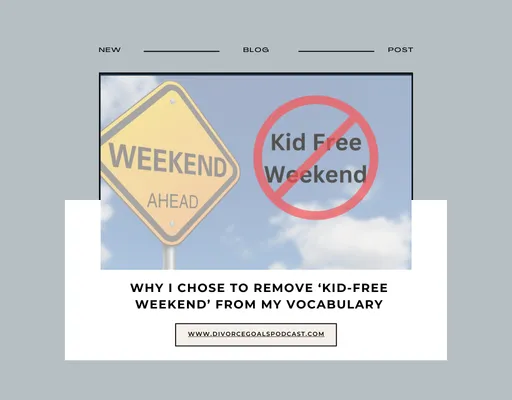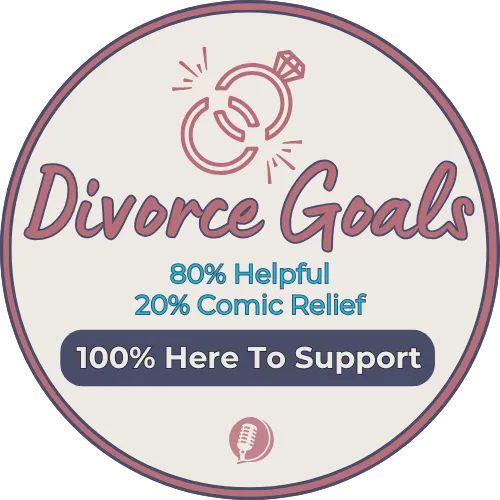

Why I Chose to Remove ‘Kid-Free Weekend’ from My Vocabulary
Why I Chose to Remove ‘Kid-Free Weekend’ from My Vocabulary
As parents going through a divorce, we often focus on making sure our children feel loved, secure, and prioritized. I certainly did. When I was navigating my own divorce, I made it a point to be present for my kids. On the weekends they were with me, I was all in—no distractions, just us. We spent time outside, went to dinner, ran errands together—whatever it was, they were my priority. I thought I was doing a great job.
But here’s the thing: I developed a habit I wasn’t even aware of.
The Moment My Kids Called Me Out
When friends, neighbors, or coworkers invited me to do something fun on those weekends—maybe catch a new movie, grab a bite, or have a drink—I’d say:
"Thank you, but I’m with the kids this weekend. Hit me up next weekend when I’m kid-free."
To me, it was just a polite way of declining plans. I thought it showed I was putting my kids first, prioritizing time with them over socializing.
I didn’t realize how it sounded to them.
One evening, my kids told me something that hit me like a ton of bricks:
"It seems like you save all the fun stuff for when we’re gone."
To them, “kid-free weekend” translated into “the weekend when Mom has fun without us.”
I had no idea they felt this way. I genuinely loved my time with them. I thought I was doing the right thing by making sure we had quality time together. But in their eyes, I was sending the message that the real fun only happened when they were at their dad’s… and they were missing out.
When Divorce Feels Different for Parents vs. Kids
Looking back, I realized something else. Before the divorce, our home was always social.
I would host weekly happy hours and huge New Year’s Eve parties. Friends and neighbors would stop by unexpectedly, and before we knew it, we’d be ordering pizza for the kids and whipping up appetizers and drinks for the adults.
After the divorce, I scaled back. I thought the kids needed calm, one-on-one attention to feel safe. But in reality, I was the one who needed the quiet. I no longer needed all the noise and distractions to cover up a deteriorating marriage. The peace and calm were for me—but not necessarily for them.
What My Kids Really Wanted
They didn’t take my “quality time” as something special. In their words, that "quality time" might as well have been called ‘boring time.’
It didn’t matter that we were getting outside, going to parks, or snuggling up for movie nights. They missed the spontaneous fun that comes from including others.
I didn’t overhaul my parenting approach, but I did change how I talked about weekends.
Instead of saying, "Maybe next weekend when I’m kid-free," I started saying things like: ✅ "My kiddos are home this weekend... we’d love to have y’all over to watch the football game on Sunday!" ✅ "Do you want to grab a few more people and we can all head down to the park?"
I also started asking my kids what they wanted to do. I had been so focused on providing a safe, quiet environment for healing that I forgot to actually communicate with them.
The Lesson: Be Mindful of What Your Words Might Mean to Your Kids
While divorce was a huge change in my life, it wasn’t a huge change to my kids' personalities. They still wanted fun, spontaneity, and to feel like they were part of something.
Looking back, I see that I overcorrected after my marriage ended. I was lucky my kids felt comfortable enough to speak up. Because of that, we found a new normal together. I ditched the phrase "kid-free," and we brought back some levity and spontaneity into our lives.
💡 A Final Thought: My kids were 5 and 7 when their dad and I divorced, and they were 6 and 8 when they called me out on my wording. Today, they’re 19 and 17, and I am still so grateful they spoke up when they did.
I’m not a perfect parent. I’ve probably made every mistake in the book at least once—some two or three times. But this was one mistake I’m glad I caught early.
Have You Had a Similar Experience?
What phrases or habits did you unknowingly pick up during your divorce? Have your kids ever called you out on something that made you rethink how you communicate with them?
I’d love to hear your thoughts in the comments! 💛



Facebook
Instagram
LinkedIn